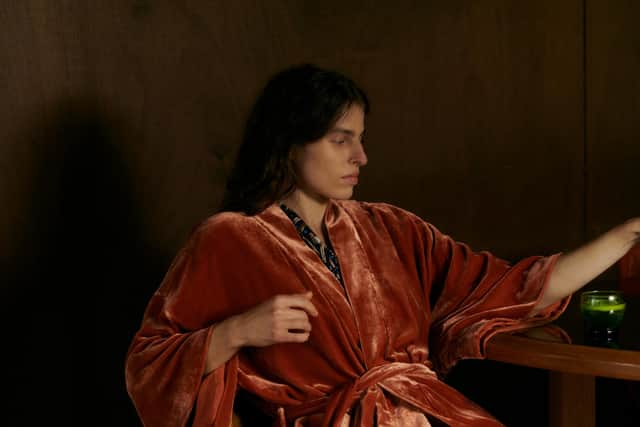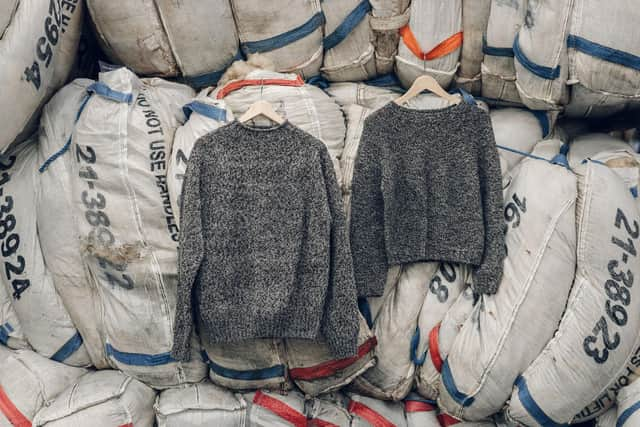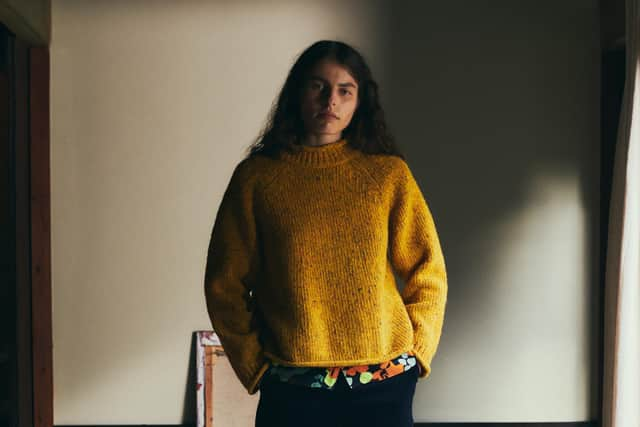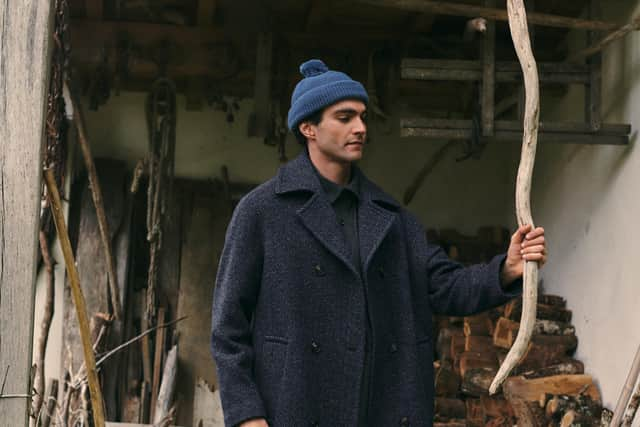Fashion and homewares brand Toast and the Yorkshire mills that help make its luxury knitwear
Toast, as visitors to the beautiful Harrogate and York stores will know, is a luxury fashion and homewares brand that takes care to showcase its collections in an immersive and striking way.
Its autumn/winter fashion collection, Everyday Theatre, explores the improvisational and free-spirited nature of those who see possibilities and beauty in all they encounter. “When designing, we focused on two muses – Saul Leiter and Jacques Tati – who used their art to encourage their audience to see the beauty and the humour in the everyday,” says menswear designer Catie Palmer.
Advertisement
Hide AdAdvertisement
Hide AdAmerican photographer Saul Leiter’s colourful images inform the rich and saturated colour palette. “Dusky pink blends with tomato red and slate green with soft mint,” Catie says. “The rain-drenched windows featured in his photography are brought to life in soft ombre checks, British woven wools and mohair textured knitwear.”The influence of French filmmaker, actor and screenwriter Jacques Tati brings a lightness and sense of humour. “His personal style inspires our traditional tweeds woven in Italy from an unusual colour palette and used in soft silhouettes,” Catie says. Witness the raglan-shouldered coats, wool overshirts and drawstring trousers.


Founded in 1997 as a mail order pyjama company by Jamie and Jessica Seaton, Toast is now 75 per cent owned by Danish fashion house Bestseller. It takes pride in its circular fashion initiatives, offering a Reworn collection of previously loved pieces, a Renewed collection of creatively repaired pieces, its Exchange events-based clothes swaps, and Repair, its free mending service.
It also strives to support British producers and farmers. One example can be seen in the Toast autumn/winter knitwear collection, for which a mens and a womens sweater have been created using undyed wool sorted from the mountains of fleece bales that fill the British Wool depot in Bradford.
Sean Crannigan, owner of Toast supplier Knoll Yarns in Ilkley, buys the wool directly from British Wool, and sends it to be spun nearby at Lightowlers in Huddersfield. The yarn is sent to Scottish knitters Harley, to be knitted into shapes created by Toast designers, making the finished sweaters entirely UK-made.
Advertisement
Hide AdAdvertisement
Hide Ad“Each grader will get through six tonnes of wool a day, 3,000 fleeces,” says Ian Brooksbank, who manages the operation at British Wool and has been working there since 1990. “We're just not sorting the wool by breed, we also grade by the characteristics that the buyer wants.”


There are more than 100 different grades, which are split into six main categories of wool – “fine, medium, cross, lustre, hill and mountain.” Ian runs his hands through a range of fleeces with different lengths and fineness on the sorting table. “This is all from one farmer,” he says.
By grading the fleeces they ensure that the farmer receives the best price for the quality of each – British Wool is owned by approximately 35,000 sheep farmers in the UK, and all profits are returned to them.
Each scrap of wool is reused – the sweepings from the floor will be used for products where variation in wool micron, colour and length will not matter, such as insulation.
Advertisement
Hide AdAdvertisement
Hide AdA chalk board with a three-digit number hangs above each blue sorting trolley. Each number corresponds to a specific grade, with the first digit relating to the six main categories, and the additional digits narrowing down the specifics of the quality within those.


“Once the main category has been decided, there are other qualities to consider that will greatly affect the end use,” Ian says. “One thing is these grey fibres running through the wool,” he says, “which will affect how it will dye. Another is this matting of the fibres, which means it would have to go through another process. It doesn’t affect the quality of the fibre, but it affects the uniformity.”
Each grader trains for three to five years, learning beside an experienced member of the team before they start working by themselves.
“My job as head grader is to keep everyone’s opinions as matched as we possibly can,” says Ian. “We want to get the best possible price for each farmer, but we also need to make sure that the customer is receiving a consistent product, and that comes from a consistent grading line.”
Advertisement
Hide AdAdvertisement
Hide AdFamily-run spinners Lightowlers is based in Meltham, near Huddersfield. The mill building dates from 1866. The company was established in 1960 by Richard Morley Lightowlers, the father of current director Michael Lightowlers, and Richard’s brother Frederick William (known as Teddy).


“They were carding engineers,” says Michael. “A few mills were closing down at that time, so they decided to take it over.” He runs the business alongside second and third generation family members Mark and Peter.
At Lightowlers, the wool is blended, carded, spun into yarn, then wound. The factory uses traditional mule spinning, a technique invented in the late 18th century which sped up production. “These machines have certainly been out of production for 40 years,” Michael says.
SEE YORKSHIRE FASHION HIGHLIGHTS 2023 with Amy Garcia and Christine Talbot HERE
Advertisement
Hide AdAdvertisement
Hide Ad“This one’s from the 1950s, and the manufacturer stopped making them in the ’60s.” When needed, the machines are repaired in-house, using spare parts or locally produced replacements. Michael takes a strand of yarn, securing it to the floor with his foot, spins it between his expert hands, then pulls it to show the strength. “You can see how the fibres come together, making a robust yarn.”
Mill photographs by India Hobson. This story, and many others celebrating manufacturing and sustainability, can be found in the online magazine on Toast’s website toa.st.
Comment Guidelines
National World encourages reader discussion on our stories. User feedback, insights and back-and-forth exchanges add a rich layer of context to reporting. Please review our Community Guidelines before commenting.
